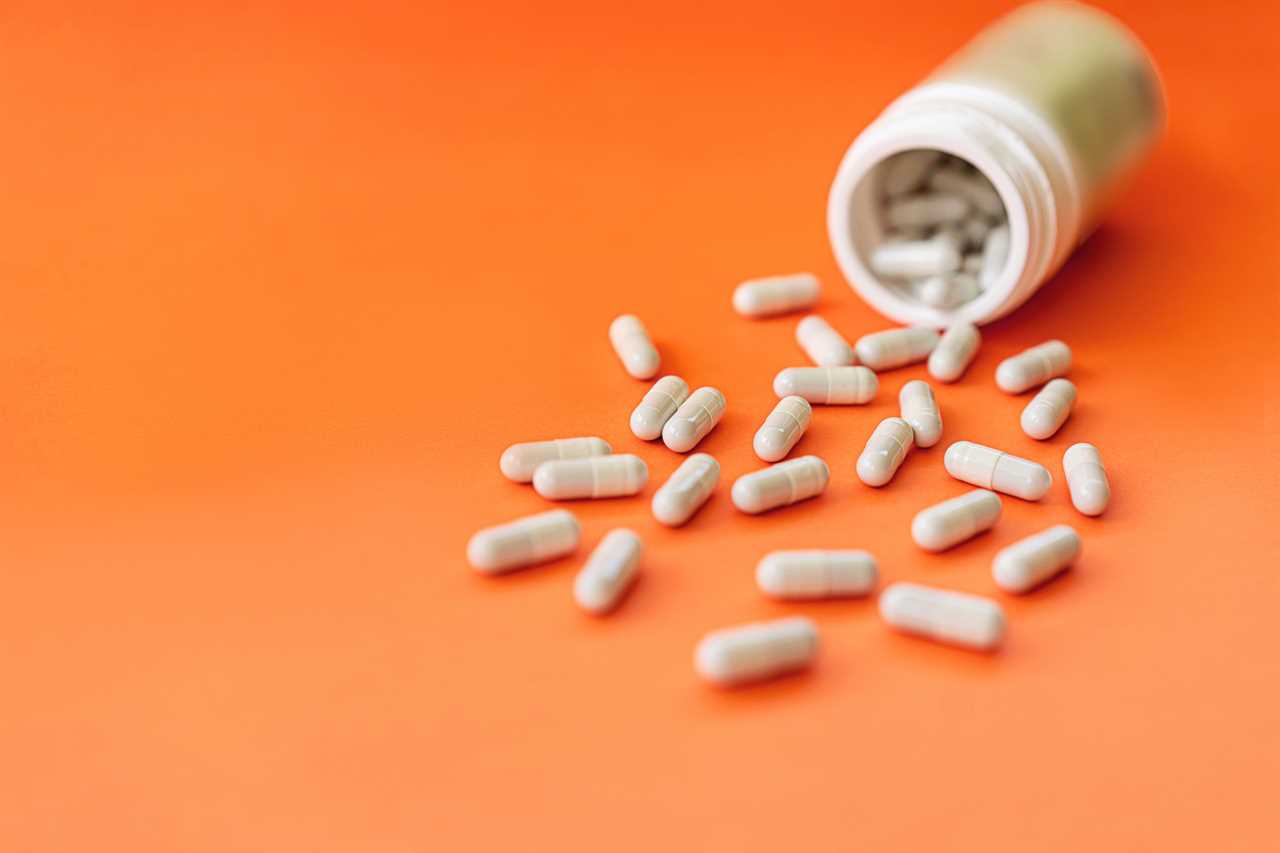A COMMON daily vitamin tablet can increase the risk of deadly lung cancer, a study has found.
Vitamin A is traditionally taken to help the immune system and eye sight.

Lung cancer is currently the leading cause of cancer deaths in the UK
However, experts from Pecking University in China have warned people against taking the supplement after they found the tablets can cause certain lung cancers.
Previous research found that too much vitamin A can increase the risk of ovarian cancer.
This is the first time the association has also been made with lung cancers.
The research, published in Frontiers in Nutrition, found that high intake of vitamin A increases the risk of squamous cell and adenocarcinoma lung cancers.
Lung cancer is currently the leading cause of cancer deaths in the UK – and has just a five year survival rate.
Around 47,000 people are diagnosed with lung cancer every year in the UK – and 34,700 people die.
Squamous cell carcinoma and adenocarcinoma are both common types of lung cancer.
Adenocarcinoma is the most common type and starts in the mucus making gland cells in the lining of your airways.
While squamous develops in the flat cells that cover the surface of your airways.
The paper was based off an analysis of the health records of over 11,000 lung cancer patients.
The NHS advises that people do not take more than 7mg of beta-carotene supplements a day unless advised to by a doctor.
People who smoke or who have been exposed to asbestos are advised not to take any beta-carotene supplements.
Experts have found some other vitamin supplements can increase your risk of cancer.
Selenium
Selenium is a mineral found in foods such as oysters, brazil nuts, eggs, yellowfin tuna, sardines and sunflower seeds.
It has a number of benefits including boosting metabolic health and helping with thyroid function.
A Cochrane review published in 2018 looked specifically at the supplement and if it could help reduce cancer risk.
Experts found it did not lower the likelihood of cancer and some trials actually reported a higher risk of prostate cancer.
Patients who took the supplement also had a greater risk of developing type 2 diabetes, experts found.
The NHS says you should have 0.075mg of selenium a day if you’re a man and 0.060mg a day if you are a woman – this applies to ages 19-64.
Folic acid
Folic acid is a key supplement – and one that pregnant women are advised to take during pregnancy.
This is because when the baby is developing, it helps form their neural tubes.
It’s especially important as it can help prevent some major birth defects such as brain and spine issues, the Centre for Disease Control says.
The NHS recommends you take: 400 micrograms of folic acid every day – from before you’re pregnant until you’re 12 weeks pregnant.
If you’re not pregnant, you should have 200 micrograms per day.
A paper penned in 2019 found a link between folic acid supplements and colorectal cancer.
People who took folic acid and b12 pills were found to be at a 21 per cent higher risk of cancer.
The experts found that 38 per cent of those studied were at an increased risk of dying from the illness.
It’s important to note this was a trial of just 1,021 people, all diagnosed with colorectal cancer.
Vitamin E
It’s easy to get enough vitamin E through the likes of peanuts, almonds, spinach and peppers.
The NHS says you need 4mg a day for men and 3mg a day for women.
A study published in 2012 found that supplementing your diet with vitamin E could increase the risk of prostate cancer in healthy men though.
This was specific to vitamin E with high doses of α-tocopherol, which is a type of vitamin E with the number E307.
It’s important to note that people who have cancer often take supplements.






